
Spray Foam Insulation and More Services in Westchester NY
At All Spray Foam Insulation Inc, we offer complete spray foam insulation services in Westchester, NY for both residential and commercial properties.
Whether you need to insulate your attic, garage, or crawl space, we have the experience to do it safely and efficiently.
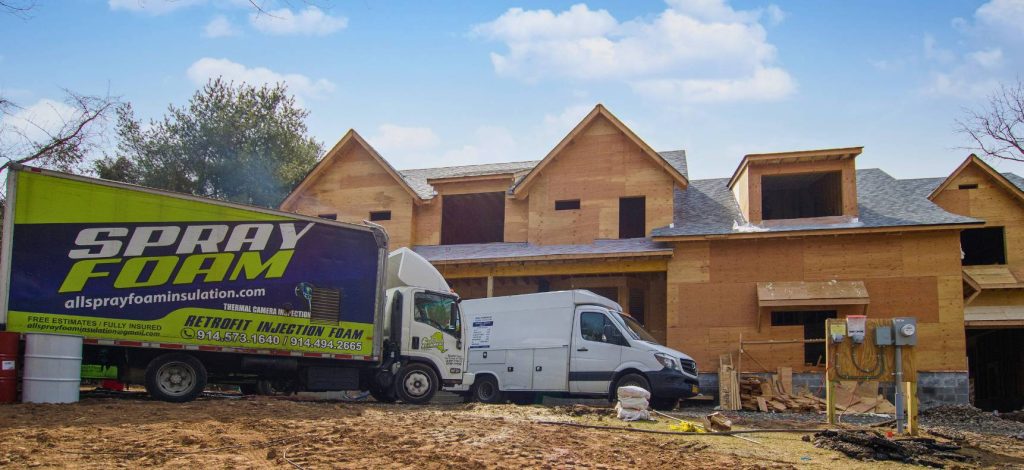
Another benefit of spray foam insulation in the attic is that it can help to reduce noise pollution. The insulation creates a barrier that can absorb sound waves and prevent them from traveling throughout your home.
It’s worth noting that the installation of spray foam insulation in the attic is not a DIY job and should be left to a professional. The process involves spraying a two-part foam mixture onto the attic surfaces, which requires specialized equipment and training to ensure it’s done safely and correctly.
Overall, spray foam insulation is an effective and efficient way to insulate your attic, and it can help to improve your home’s energy efficiency, reduce noise pollution, and prevent moisture buildup.
Spray foam insulation is a popular option for insulating attics
Spray foam insulation is a popular option for insulating attics, and it offers several benefits over traditional insulation methods. When applied correctly, spray foam insulation creates an airtight seal that helps to prevent air leaks and can significantly improve the energy efficiency of your home.
One of the advantages of using spray foam insulation in the attic is that it can help to prevent moisture from accumulating. This is particularly important in areas with high humidity levels, as moisture can lead to mold and mildew growth, which can be harmful to your health.
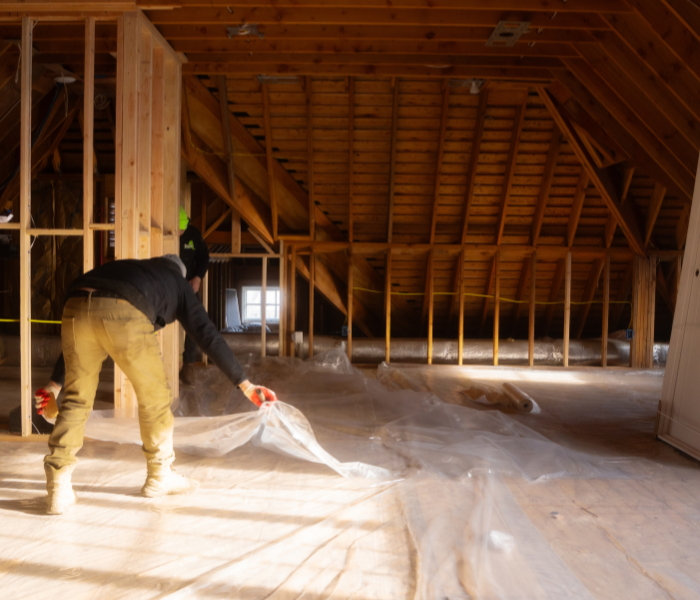
Overall, spray foam insulation is an excellent choice for insulating foundations. It provides superior thermal performance, air sealing, and moisture control, which can help save energy, reduce heating and cooling costs, and promote a healthier indoor environment.
If you’re considering insulating your foundation, be sure to consult with a professional insulation contractor who can help you choose the best type of insulation for your needs.
Spray foam insulation is a popular choice for insulating foundations
Spray foam insulation is a popular choice for insulating foundations because it provides excellent thermal performance, air sealing, and moisture control. Spray foam insulation is applied as a liquid and then expands to fill every nook and cranny in the foundation, creating a complete seal.
One of the key benefits of spray foam insulation for foundations is its ability to prevent air leakage. Air leakage can account for up to 40% of a building’s energy loss, and spray foam insulation can help reduce this loss significantly. This not only saves energy, but it also helps reduce heating and cooling costs.
In addition to its energy-saving properties, spray foam insulation also provides excellent moisture control. It can help prevent the growth of mold and mildew, which can lead to serious health problems. The insulation also helps prevent water damage by creating a barrier between the foundation and any potential sources of water intrusion.
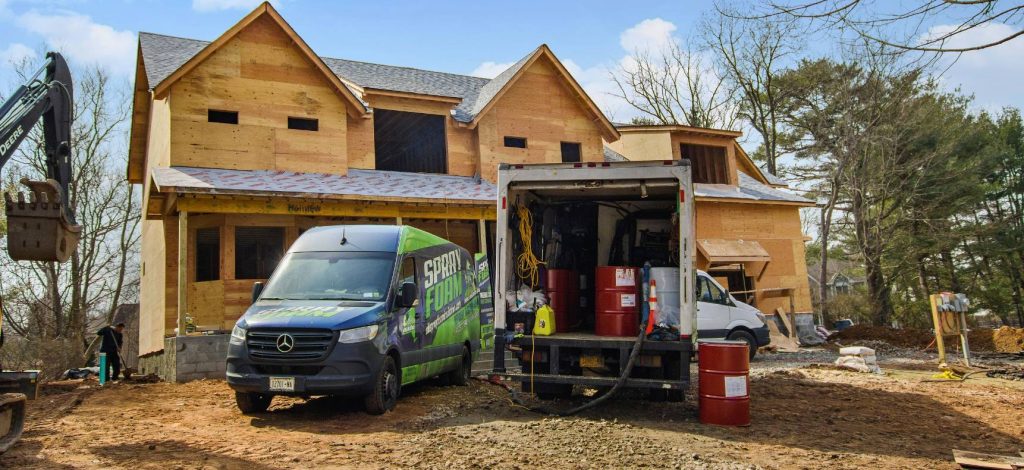
When it comes to choosing a spray foam service for your basement, it’s important to work with a reputable and experienced contractor who can properly assess your insulation needs and provide a high-quality installation. A professional spray foam service will ensure that the foam is applied evenly and thoroughly, and that all necessary safety precautions are taken during the installation process.
Overall, spray foam insulation is a great choice for basements due to its superior insulation, air-sealing, and other benefits. If you’re considering spray foam for your basement, be sure to work with a qualified contractor who can help you get the best results.
Spray foam insulation is a popular choice for basement insulation
Spray foam insulation is a popular choice for basement insulation because of its superior insulating properties and ability to seal gaps and air leaks. Spray foam is applied as a liquid and expands into a foam, filling any gaps or crevices in the walls, floors, and ceilings of a basement.
One of the main benefits of spray foam insulation is that it provides a continuous air barrier, preventing air leaks that can cause energy loss and reduce indoor comfort. This is especially important in basements, which are often prone to moisture and air infiltration due to their location below grade.
In addition to its insulating and air-sealing properties, spray foam insulation also provides other benefits for basements. It can help reduce noise transmission between floors, improve indoor air quality by reducing the infiltration of outdoor pollutants, and provide added structural support to basement walls.
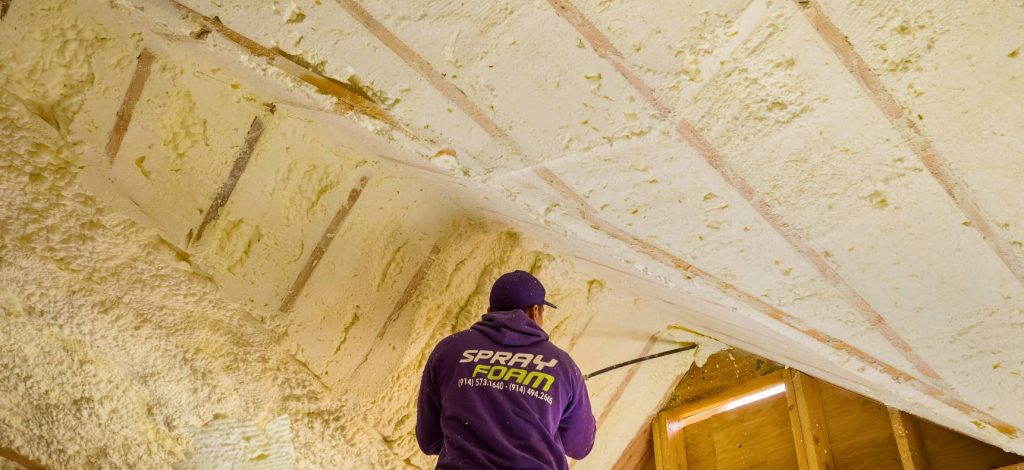
When it comes to soundproofing, spray foam insulation can help to reduce noise transmission between floors by filling in gaps and creating a solid barrier. This can be especially helpful in multi-unit buildings or homes with multiple floors.
Spray foam insulation can be an effective way to soundproof and increase comfort in floors.
Spray foam insulation can be an effective way to soundproof and increase comfort in floors. The foam is applied in liquid form, then expands to fill gaps and create a solid barrier that reduces noise transmission.
In terms of comfort, spray foam insulation can help to prevent drafts and keep floors warm by creating a thermal barrier. This can be especially beneficial in colder climates or in homes with poor insulation.
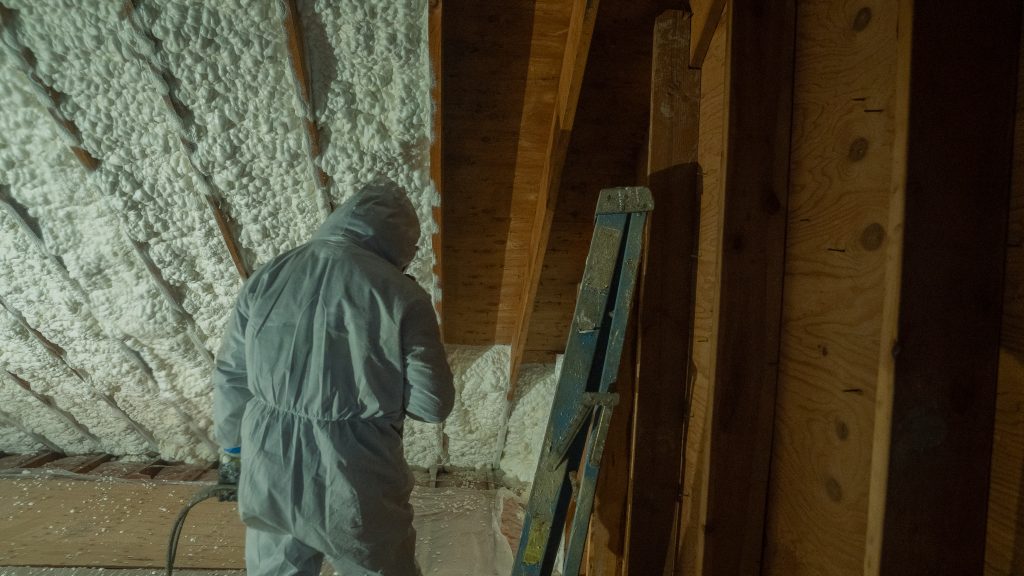
One of the key benefits of retrofit injection foam is its ability to improve the energy efficiency of existing buildings without the need for major renovations or structural changes.
This can help to reduce energy costs and improve indoor comfort levels for occupants. Additionally, retrofit injection foam can be a cost-effective solution for improving the insulation performance of older buildings that may not have been designed with energy efficiency in mind.
Retrofit injection foam is a type of insulation material that is designed to be installed in existing buildings to improve their energy efficiency.
This foam is typically injected into the walls or other cavities of a building to fill any gaps or voids in the existing insulation, providing a more effective barrier against heat transfer.
Retrofit injection foam insulation is made from a variety of materials, including polyurethane, polystyrene, and cellulose. The foam is typically applied using specialized equipment, which allows the material to be injected into wall cavities and other hard-to-reach areas. The foam then expands to fill the available space, creating a tight seal that helps to reduce air infiltration and heat loss.
Why Choose Us in Westchester?
If you’re searching for spray foam insulation near me in Westchester, you’ve come to the right place.
We’re a local, trusted company with years of experience as a spray foam insulation contractor in Westchester, NY.
Our clients choose us because:
Honest and transparent quotes (we offer quick and no-obligation fireproofing estimates in Westchester)
High-quality materials and personalized service
Long-lasting solutions that help lower your energy bills
Contact us today and find out why we’re the top choice in Westchester for residential and commercial insulation projects.
Spray foam insulation is an excellent option for garages as it provides a seamless and airtight barrier that can help to prevent air leakage, moisture infiltration, and energy loss.
Here are the steps that typically go into a spray foam insulation service for garages:
- Assessment: A professional spray foam insulation contractor will first assess your garage’s insulation needs, taking into consideration the garage’s size, shape, and layout. They will also evaluate any existing insulation and identify any problem areas that need to be addressed.
- Preparation: The contractor will then prepare the garage by cleaning the surfaces that will receive the spray foam insulation, ensuring that they are free of dust, debris, and any other contaminants that may interfere with adhesion.
- Application: The contractor will then apply the spray foam insulation to the walls, ceiling, and any other areas that require insulation. The spray foam is applied as a liquid and then expands to fill gaps and crevices, providing a seamless and airtight barrier.
- Finishing: Once the spray foam insulation has been applied, the contractor will trim any excess foam and finish the surface as necessary to ensure a clean and professional appearance.
Overall, a professional spray foam insulation service for garages can help to improve energy efficiency, reduce noise, and create a more comfortable and functional space. It is a cost-effective and long-lasting solution that can help to enhance the value of your property.
